Jamaica is a country with many question marks: Is it safe to travel in Jamaica? How do I get around Jamaica? What is life in Jamaica like? What charger do I need for Jamaica? What is the best beer in Jamaica??? So many questions! After 10 months in country, I can definitely answer a few of those questions in this Jamaica destination guide, a collective of life and travel tips I have accumulated for new arrivals to Jamaica, be you a traveller or an ex-pat!
Jamaica is an English-speaking island in the Caribbean region located south of Cuba and between the Cayman Islands and Haiti. The capital city is Kingston, and the tourist hotspots are Montego Bay and Ocho Rios.

-
Population and People of Jamaica
Jamaica has a population of 2.7 million, 92% of whom are of African descent, 6.1% of whom are mixed ethnicity, 0.8% of whom are of South Asian descent, and 0.7% of whom are unspecified (Census 2014). The predominant religion in Jamaica is the Protestant faith which 64.8% of the population follows though active faiths also include Roman Catholic (2.2%), Jehovah’s Witness (1.9%), and Rastafarian (1.1%). The average life expectancy in Jamaica is 73 years of age, with a majority of the population falling into the 25-54-year of age bracket (37.59%). 54.8% of the population live in urban centres, while the remainder live in rural areas. The Jamaican motto ‘Out of Many, One People’ characterizes the population and culture of Jamaica very well.
Jamaica is considered a bilingual country; English is the official language. Patois, an English based Creole language is spoken widely as the casual form of communication.

-
Geography of Jamaica
At its greatest extent, Jamaica is 235 km long, and its width varies between 34 and 84 km. With an area of 10,911 km2, Jamaica is the largest island of the Commonwealth Caribbean and in the English-speaking Caribbean. Jamaica is famous for its beaches along the North Coast, but the country is also lush with green mountains, thick vegetation, rainforests, jungles, and agricultural land.
The Blue Mountain peak is Jamaica’s highest point at 2,256 metres, though the entire island has mountain ranges running down the middle of varying height and topography. The coastlines of Jamaica are greatly varied, from the white sandy beaches of Negril and Montego Bay to the rocky and rugged shoreline of the Northeast in Portland and St. Mary. The south coast has several black sand beaches as well as stretches with no coastal plain and instead cliffs that drop 300 metres into the ocean.


-
Climate and Weather of Jamaica
Jamaica is a typical tropical country that is very hot especially during the summer months (June-September). Because of the varied topography, weather patterns are highly changeable throughout Jamaica, with some parishes receiving cooler weather, diverse levels of rainfall, or high humidity. Weather is highly dependent on the season as well as the elevation of the location in question. Kingston is known to be extremely hot and often dry, while Mandeville is cooler and more prone to rain. Portland receives large amounts of rain as well, almost daily in recent years. Rainfall is increasing across the country due to climate change.
Jamaica suffers from a range of natural hazards, such as seasonal hurricanes, drought, flooding, landslides, and earthquakes. Due to climate change, weather based hazard patterns have been shifting and are less predictable.

-
History, Government and Politics of Jamaica
Jamaica was initially settled between 4000 and 1000BC by the Taino and Arawak indigenous people. Christopher Columbus landed in what is now Discovery Bay in 1494, starting an era of Spanish rule from 1509-1655. The British forcibly evicted the Spanish in 1655, adding Jamaica to the Commonwealth Empire. Early British rule was heavily characterized by the slave trade. Jamaica was a part of the New World slave trade circuit, as massive sugar cane and cotton industries were built on the backs of slave labour. During this time, many slaves escaped their plantations to form free communities in the interior mountains. These communities became known as Maroon settlements and are unique in culture and governance to this day. Accompong village is one such Maroon settlement that can be visited and toured.
British rule ended in 1962 with full Jamaican independence, though Jamaica remains a part of the British Commonwealth as a Unitary Parliamentary Constitutional Monarchy. The British monarch as the normative head of state (represented by a Governor General in country). Jamaica is a major member of the Caribbean Community (CARICOM).


Jamaica has a two-tiered Parliamentary system of governance, with a House of Representatives (Lower House) and a Senate (Upper House). Members of Parliament (MPs) are directly elected by their constituents while the Prime Minister is appointed by the Governor General from the majority party in the House (after having been elected by party members as the party leader).
Traditionally, Jamaica has been a two-party system, with national power alternating between the People’s National Party (PNP) and Jamaica Labour Party (JLP).
The country has 14 parishes: St. Catherine, St. Andrew, St. Thomas, Portland, St. Mary, St. Ann, Trelawny, St. James, Hanover, Westmoreland, St. Elizabeth, Manchester, Clarendon and Kingston.

-
Economy of Jamaica
Jamaica has a national yearly GDP of US$14.26 billion (2015). Major sectors of the Jamaican economy include tourism, agriculture, mining, manufacturing, and financial and insurance services. Tourism and mining are the leading earners of foreign exchange. Half of the Jamaican economy relies on tourism and services every year, as an estimated 1.3 million foreign tourists visit Jamaica every year. Remittances from the Jamaican diaspora are also essential to the daily lives of many citizens.
Jamaica has a high youth unemployment rate at 27.4% and a general unemployment rate of 12.9%. The current GDP per capita is approximately US$5000.

Without a car, transportation around Jamaica is reasonably easy, though not necessarily comfortable. Route taxis are the main way Jamaicans get around, whether you are travelling in larger towns or throughout the country. A route taxi is a car with a driver who has a license to cover a specific route or area within town. Drivers may also have longer routes, like between Mandeville and Santa Cruz. Prices depend on the destination, though they are typically very reasonable. Legally, there can be up to 4 people in the back seat of a route taxi. Often there are more people in the car; public transport in Jamaica can be very close quarters. There is a reason this picture is blurry…
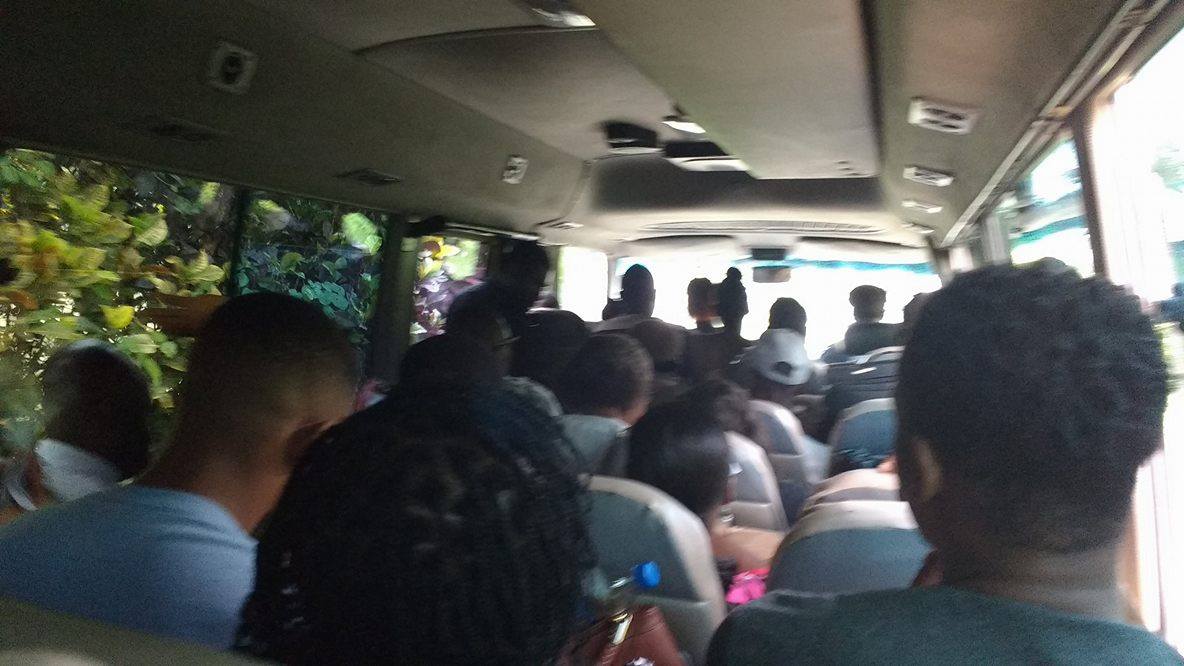
There are mini-vans and coaster buses that connect larger towns around Jamaica for reasonable prices. Vans and buses are often filled with as many people that can be fit.
The Jamaican Urban Transit Company (JUTC) provide large city buses in major urban areas (Kingston, Montego Bay, and Spanish Town). The Kingston airport can be reached via JUTC bus (#98) from Downtown Kingston.
Taxis, minivans and cruiser buses do not operate on schedules and leave when they are full.
The Knutsford Express is the only large air-conditioned, coach service in Jamaica. These large coach buses connect all major towns and some smaller tourist destinations. They run on set schedules and tickets can be bought ahead of time online. Seats are not assigned, though the bus will never be overloaded. A seat on the Knutsford Express will be much more expensive than other modes of public transit. The Knutsford Express is preferred for passengers who are travelling on a schedule, with luggage, or require more comfort.
The Knutsford Express also operates a shuttle bus from New Kingston to the Norman Manley Airport (Kingston International airport) and will also drop passengers at the Sangsters International Airport in Montego Bay. They also provide courier service around the island.


Approximate driving times in Jamaica:
*dependent on driver, weather, road conditions, traffic, and potholes
Kingston to Montego Bay – 3-4 hours
Kingston to Mandeville – 1.5-2 hours
Negril to Mandeville – 3 hours
Kingston to Ocho Rios – 1 hour
Ocho Rios to Mandeville – 3 hours
Ocho Rios to Montego Bay – 2 hours
To circumnavigate Jamaica – 11-13 hours
Roads in Jamaica vary from modern sealed freeways to very rough backroads. Many secondary roads are very winding with little shoulder or visibility around corners. Potholes are major issues in Jamaica. Some roads are not lit after dark and sidewalks are not common outside of city centres.

-
Kingston – Jamaica’s Capital City
Jamaica’s capital and largest city is Kingston with a population of just under 1 million people. Kingston is the centre for all trade, industry, government, transportation, culture, business, and development in Jamaica. Kingston also has the 7th largest, deep water shipping port in the world. Kingston is extremely hot and humid, especially during the Jamaican summer.
Necessities such as shopping, transportation, banking, postal services, museums, cinemas, dining, music venues, nightlife, health care, and general services can all to be found in Kingston.
Despite its status as an essential hub, Kingston, and neighbouring Spanish Town, experience the highest crime rate in the country. Certain neighbourhoods are known to have high petty crime rates, while others may be more gang related violence. Safety and security are concerns in Kingston.
Major attractions in Kingston are the Bob Marley Museum, the National Art Gallery, the National Museum of Jamaica and the many dining and drinking establishments.

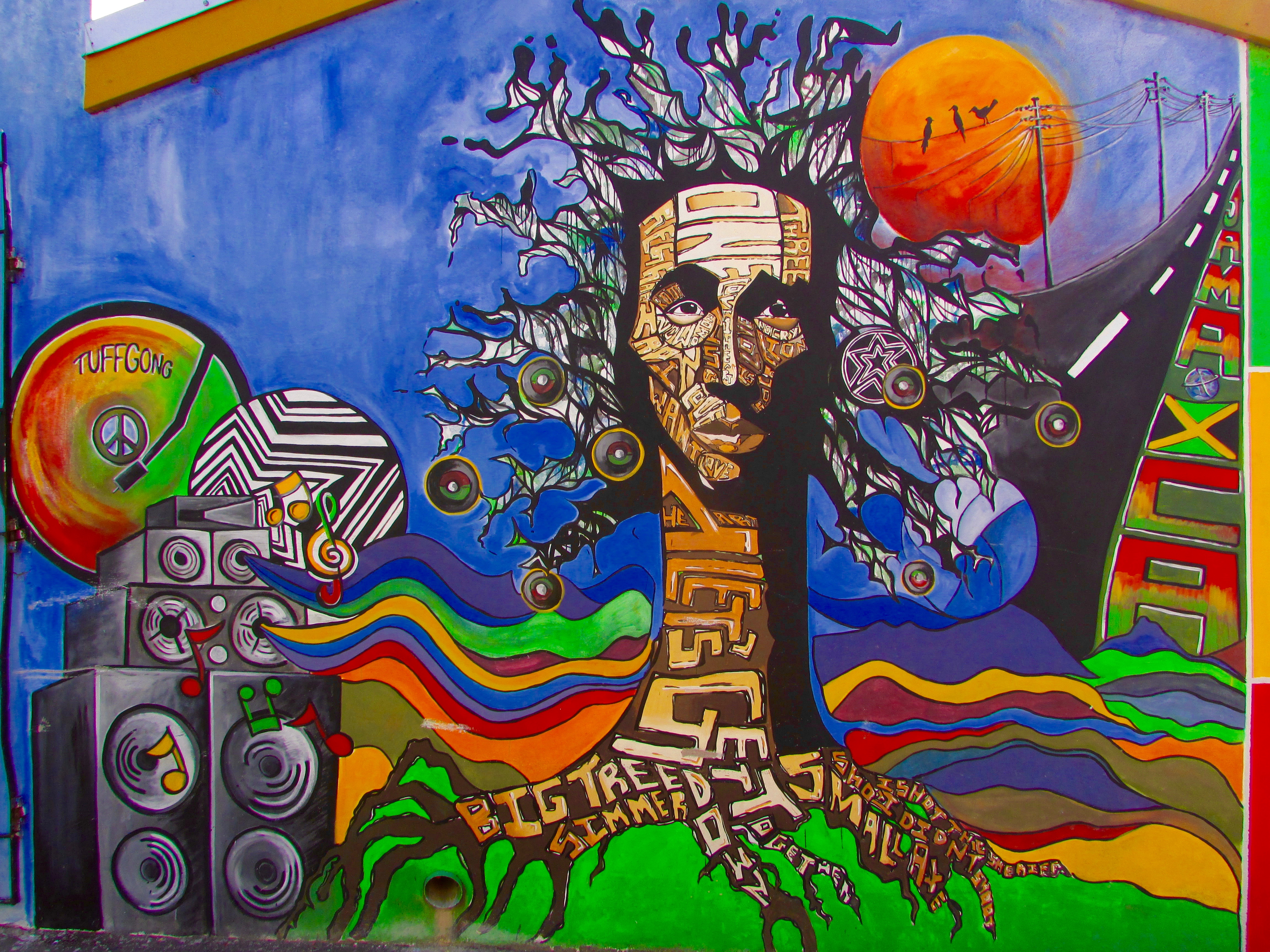
-
Jamaican Food and Drink
Jamaican food is rich, flavourful, and plentiful. Typical Jamaican menu includes chicken (fried, baked, BBQ, or jerk), curried goat, oxtail, stewed chicken, stewed peas, fish soup, jerk pork, and seafood. Sides are often rice and peas (red beans), breads (like Johnny cakes, festival or bammy), cold pasta salad, and mixed vegetables. Another Jamaican favourite are patties, pastries with a variety of fillings such as beef, chicken, shrimp, ackee, or veggie.
Jamaica’s standard cook shops are small roadside kitchens that will often serve 2 or 3 dishes, normally in take away containers. Full scale restaurants are more plentiful in the larger centres like Kingston, Ocho Rios, Montego Bay and Negril.


Major grocery stores are located in all large towns, though smaller villages will still have small corner stores with some products. Kingston, Montego Bay, and Ocho Rios offer the most diverse and international shopping opportunities. There are many grocery stores in Mandeville, ranging from small to medium sized. Many towns also have municipal markets for purchasing fresh produce. Fresh food availability depends on the season, though carrots, Irish potatoes, iceberg lettuce, green sweet peppers, tomatoes, onions, green bananas, and plantains are almost always available.
Of course, in the Caribbean, rum reigns supreme and that is no truer than in Jamaica. The most famous export rum is Appleton Rum, though many locally brewed rums are also delicious and very reasonably priced. Red Stripe is the dominant beer in Jamaica, costing about $1.50 (USD) for a bottle. Some Jamaicans drink their beer warm, which this Canadian finds cray, but you may need to say specifically you want a cold Red Stripe.

-
Banks and Money in Jamaica
The Jamaican currency is in Jamaica Dollars (JMD). It comes in $5,000, $1,000, $500, $100, and $50 notes as well as $20, $10, $5, and $1 coins. ATMS at most major banks will accept international bank cards and major credit cards for the withdrawal of cash. Bank tellers will exchange major currencies into JMD, or JMD into USD for a small fee according to the exchange rate. Foreign currency can also be exchanged at money changing cambios and Western Union branches.
Most banks are usually open from 8:30am to 2:30pm (8:30am-4pm on Fridays) and are closed over weekends and public holidays. Cheques can be cashed for a small fee with proof of identification.
Bills can be paid either at a bill paying service (eg. Express Pay) that will accept payment for many different services, or paid at the offices of each of those services. Bills cannot currently be paid online without a Jamaican credit card.
Tax Registration Numbers (TRNs) are required to hook up cable, electric and water services. TRNs can be obtained from the Tax Registration Office in every parish with a valid identification, residential address, and letter proving permission to be in the country. It is advisable for new arrivals to obtain their TRN prior to attempting to set up anything else.
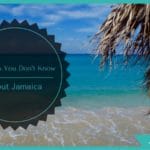

-
Cost of Living in Jamaica
Jamaica is not an entirely cheap country as certain aspects of living costs can be expensive or inexpensive by comparison. Local food products from the grocery store will be less than Canadian or American comparisons, though local products will be cheaper. A loaf of local bread is approximately $300. The municipal market will normally be the cheapest place to find fresh produce.
Public transport is inexpensive ($100 for route taxis within large towns). Public distance buses and taxis are also reasonable, approximately $250 for an hour-long trip. A one-way trip from Mandeville to Kingston (90 minutes) on the Knutsford Express will cost $2000, while it is $450 on the public coasters.
Clothes, toiletries, shoes, and other consumer products can be more expensive in Jamaica due to the import costs, though there are many wholesale type stores that offer fine prices. Household appliances in particular can be surprisingly expensive.
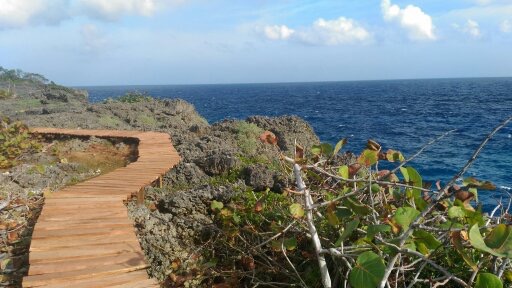
-
Time in Jamaica
Jamaica is in UTC -5.00. Jamaica does not follow Daylight Savings, therefore in the winter it is in the same time zone as Toronto and Ottawa, though in the summer it coincides with Winnipeg.
-
Electricity
The electric current in Jamaica is 110 volts and 50 Hz. Electric surges and power outages are frequent in Jamaica; therefore it is best practice to guard electronics with a surge protector.
Power sockets are the same as American and Canadian standard sockets, with two rectangular vertical prongs with an optional round ground prong at the bottom.

-
Setting up a Home
After housing is secured, water services, electric services, and cable/internet services all must be initiated.
Water must be put in the tenant’s name at the National Water Commission. Electric must be transferred to the tenant’s name at the Jamaican Public Services office. Cable and internet must be arranged with local communication provider. These services require a tax registration number, a cash deposit (amount varies per service) and photo identification to be initiated.
All bills can be organized to be emailed to the tenant for payment, though these bills may not be paid online without a Jamaican credit card.
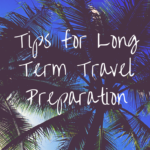
Communications in Jamaica
Mobile phone services are widely spread in Jamaica with two main providers, FLOW and Digicel. Both offer ore-pay plans or monthly talk and data plans. Coverage is good, though in very remote areas reception may be difficult. International or unlocked phones can be used in Jamaica once a SIM card is bought from a local provider.
High speed internet is available in Jamaica in hubs and for the home. The speed is good enough for Skype and downloading or streaming media.
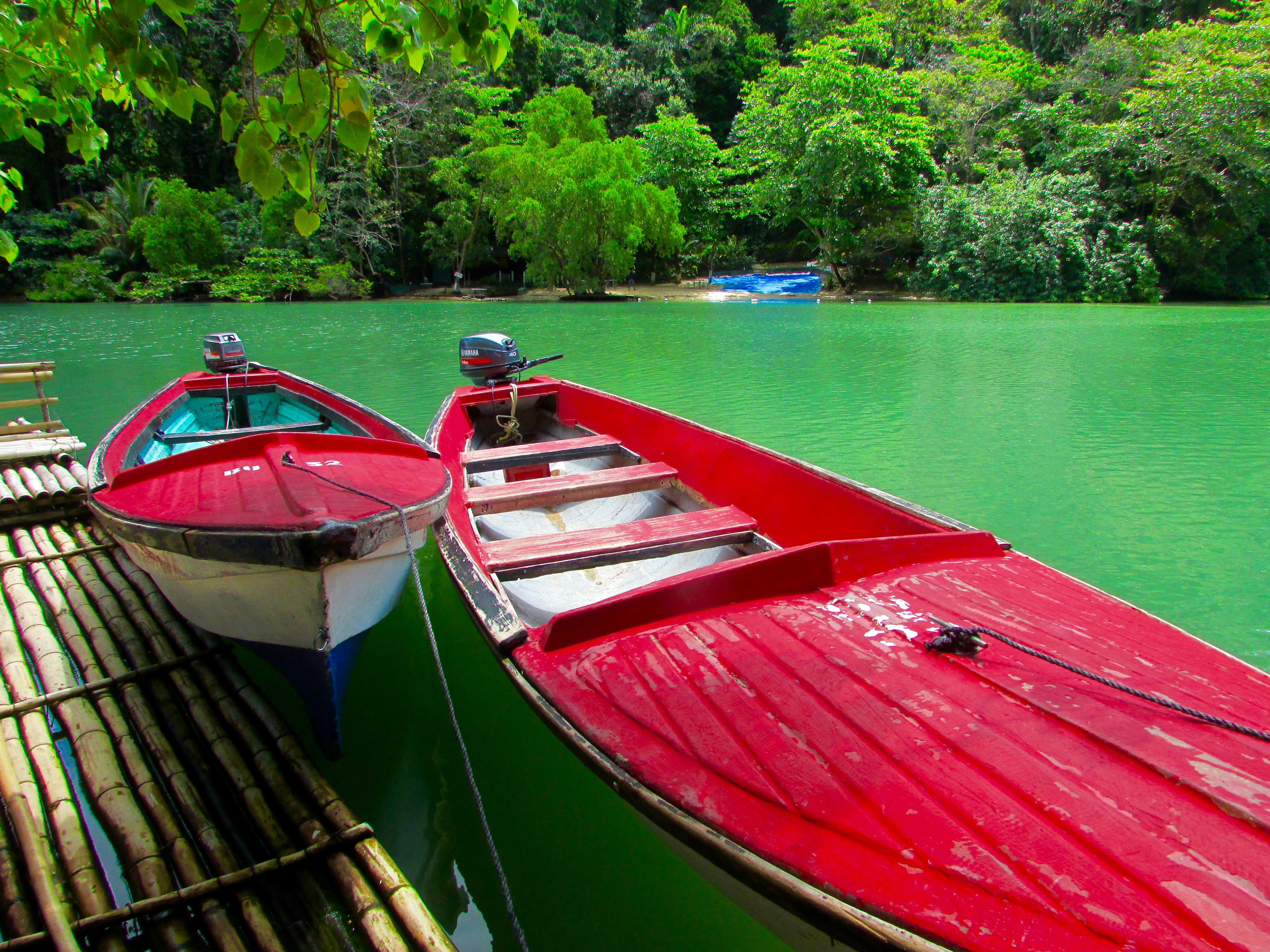
-
Toilets in Jamaica
Sit down toilets are everywhere in Jamaica, though their quality varies. In the large towns, public restrooms are available, and most service stations, restaurants, and public buildings will have these amenities. Not all restrooms will have water supply, soap, toilet paper, or be regularly maintained. Some rural towns use outhouses.
-
Jamaican Holidays
Jamaica has a five-day work week. There are 10 public holidays in Jamaica every year. Most businesses outside of Kingston will close on Sundays, with the exception of large grocery stores.
-
Postal Services
Postal services in Jamaica are not expedient. Home delivery may be initiated by visiting the local post office in certain areas. Postal boxes are very difficult to obtain as there is a very long waiting list. To receive mail without home delivery, it is required to go to the local post office and ask for any mail under the receiver’s name from the general delivery desk. Do not send valuables or important documents through the mail unless it is through registered mail.
UPS, FedEx, and DHL are all active in Jamaica and are a better choice for rapid and reliable delivery.

-
Tipping in Jamaica
Service charges are often included in bills. Tipping is optional. If you tip, about ten percent of the bill is a fair tip.
-
Health and Safety in Jamaica
Jamaica is a healthy country and has more than adequate health care services.
Tropical illnesses, such as zika and dengue are potential risks in Jamaica. All travellers require their routine vaccinations (MMR, DTP, Varicella and Polio). It is advised that most international visitors have current Hepatitis A & B, yellow fever, and typhoid vaccinations.
Rabies is not present in Jamaica.
One of the most common causes of injury in Jamaica are traffic accidents. Caution needs to be exercised when driving and as a pedestrian. Speeding, driving under the influence, and reckless driving are all common. Roads in rural areas can be narrow, dark, and winding. Seat belts are not always available in the back seats of cars, although it is the law to wear them at all times. Motorcyclists and cyclists often weave through traffic and present additional hazards.
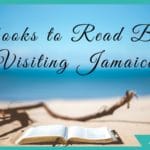
Driving is on the left hand side of the road; most vehicles are right side drive.
Crime is an issue in Jamaica, especially in certain areas of Kingston, Spanish Town, and Montego Bay. Petty crime like robbery and theft are common, as well as more violent crime depending on the time and the location. It is best practice to avoid certain areas.
Women, especially women who are not of African descent, are at an increased risk of unwanted attention and street harassment (catcalling, whistling, honking of horns, vulgar statements etc.) in Jamaica. The prevalence of sexual assault (any form of unwanted bodily contact perpetrated without consent) is also an area of concern.

-
Marijuana Laws in Jamaica
Marijuana, or ganja, is very common in Jamaica and indeed is often associated with Jamaican culture and identity. Nevertheless, consumption and possession of marijuana remains illegal, though recently laws have been relaxing.
As a foreigner, it is not prudent to openly smoke ganja in the street as to avoid becoming a target for unwanted or police attention. Citizens are permitted to have up to 5 plants on their private premises and marijuana can only be consumed with family or friends. Being caught with anything over 56 grams will bring a $500JMD fine, though transporting over 2 ounces or more could bring about a criminal trafficking charge which will affect work permits.
-
Laundry
There are laundry and dry cleaning services in major towns as well as Mandeville. Most furnished rental homes will have a washing machine with a dedicated drying line.

-
Dressing style in Jamaica
Daily dress: People wear the same clothes as in Canada – jeans, casual tops, skirts, dresses, etc. Women often wear skirts, dresses, tops that cover the shoulders, flat or heeled shoes, and trousers. Women are often very put together in Jamaica! Men often wear trousers, button up shirts, and loafer type shoes, or full suits depending on the event.
Some businesses or government agencies have dress codes that may be strongly enforced. These dress codes include requirements of “modesty”, covered shoulders, no exposed midriffs, and no sheer clothing. I was once made to wait on a sidewalk outside a compound gate because my exceedingly sexual shoulders were visible. I was fuming.
Freaking patriarchy.
Nude sunbathing is a no go, both culturally and legally.
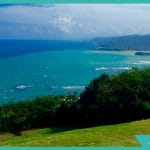

-
Insects in Jamaica
There are many insects in Jamaica, especially at dusk. Mosquitos can carry disease; therefore, it is best practice to cover the skin and use insect repellent. Should a bedroom not have screened windows, it is advisable to purchase a mosquito net.
-
Basic Necessities for Jamaica
Most of what is needed can be purchased in Jamaica though sometimes at a higher cost. Suggestions to bring from abroad include:
Sunscreen
Medicines or medical devices as needed
Allergy Pills
Insect Repellent / Afterbite cream
Proof of vaccinations and insurance
Vitamins
Cool, loose fitting clothing
Sturdy shoes for hiking or other outdoors adventures
Athletic clothing/shoes
Specialized personal toiletries (Many brands can be found but may be expensive.)
Razor blades (if specific type is required)
Quality sunglasses


-
Cultural Do’s and Don’ts
Greet men and women by shaking hands, or if a more casual encounter, bump fists.
Greet with Good Morning or Good Afternoons where entering a room, business place, taxi, or other public space.
Do not enter a private yard or residence without being invited.
It is normal for Jamaicans to buy each other drinks.
On buses, men will often offer seats to women or elderly.
Do not brush teeth or bathe in the kitchen sink.
Nudity is not accepted in Jamaica, even in your own yard. Nude sunbathing is unacceptable.
Jamaica is a sharing culture; many people will share fruits or vegetables grown on their properties.
It is prudent to avoid discussions of politics and religion in business and public settings.
Don’t put feet on seats on public transportation.
Saturdays and Sundays are both days of worship in Jamaica (Seventh Day Adventist worship on Saturdays).
It is normal to address a person who is older, in authority, or in a high social standing as Mr. or Miss/Mrs. Older people may be referred to as Auntie, Boss, Chief etc.

-
Useful links for more Information on Jamaica
Jamaica Gleaner (Daily newspaper)
Jamaica Observer (Daily newspaper)
Visit Jamaica (Tourism Travel Guide)
Did you find this post helpful?? Pin It for later!
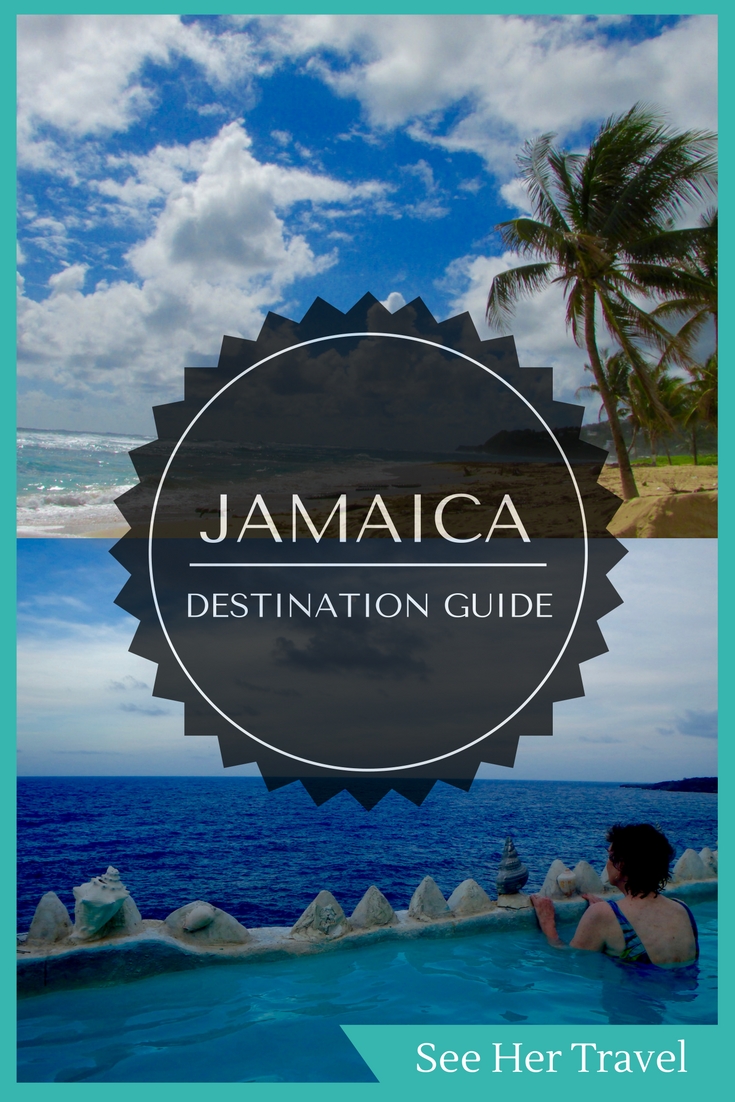











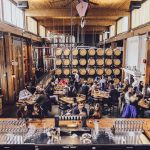
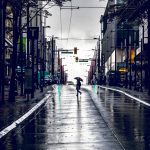

Ryan Biddulph
- Edit
Fabulous guide Emily!
I love the fist bump. It encompasses Jamaica. Laid back, chill, beautiful, kind and just a fun place to laze away the day. The closest place I visited that I can compare to is Fiji….where the locals would just say….”EASY……” when speaking about the day. This is an island where people sometimes meet their Maker after falling asleep under a coconut tree and getting bopped on the dome with a falling coconut LOL.
Thanks for sharing 🙂
Ryan
Emily K
- Edit
Bula Ryan! Yes, I fist bump an inordinate amount of people per week haha.
I would definitely accept the comparison between Fiji and Jamaica, having lived in both now, a ton of similarities: both small island states but not that small, lots of tourism but then again a ton of other wonderful things going on for real life, and of course so beautiful. I remember being told not to hang out underneath coconut trees when I lived in the Cook Islands too, same advice for papaya trees!
I do love me my small tropical islands!
Cheers,
Emily
Jay Money
- Edit
It seems you love my country. Thank you for being honest about it. It is your Jamaica too. I will use it to educate my American friends and kids.
Much Respect.
Emily K
- Edit
Hi Jay,
Glad you enjoyed my take, I have very much appreciated the opportunity to live in Jamaica and see so much of this beautiful country. I think the more that people travel the whole country and not just the resorts or the cruise ship ports, the better!
Cheers,
Emily
Jhunelle J ♦ www.simplylocal.life
- Edit
Wow, so detailed, should be a great help to visitors!
Emily K
- Edit
Thanks so much!
Yanna McIntosh
- Edit
Thank you so much. I am a single woman traveller, Jamaican born (Canadian bred) with few visits (only two as an adult), longing to know and love Jamaica – beyond the tourist beachfronts – although, I don’t know them either. Most “off the beaten path” sites I’ve found don’t include Jamaica and my sense is that some of the guide books contain outdated or wrong information. And even my few relatives seem to be trying to SCARE me from coming. I appreciated your candor, your knowledge and your additional readings. Your love and respect for the country really comes through.